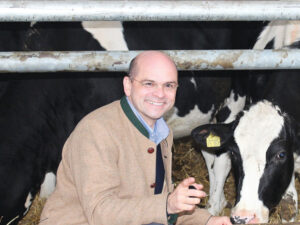
The dairy sector in Uganda is facing a crisis due to an ongoing trade war with Kenya, resulting in reduced production and job cuts. Kenya, previously Uganda’s largest market in East Africa, has declined export permit applications, causing economic hardship for Ugandan milk farmers and processors. Consequently, Uganda is aggressively seeking alternative markets to absorb its surplus milk production. The situation underscores the importance of resolving trade disputes within the East African Community and finding new markets to support the dairy industry’s stability and the livelihoods of millions of households.
On June 23, 2023, Brookside Dairy Uganda sent home around 200 workers due to a 75% reduction in production. The company faced difficulties exporting milk since March, as Kenya, Uganda’s largest market in East Africa, declined its 116 export permit applications. The situation is attributed to a supremacy battle between Kenyan President William Ruto’s regime and his predecessor Uhuru Kenyatta, whose family owns Brookside Dairy.
The trade dispute has severe implications for Ugandan milk farmers and processors, pushing them towards economic ruin. Consequently, Uganda is actively seeking markets outside the region, but an earlier milk export deal with Algeria seems to have fallen through.
Brookside Dairy Uganda, a subsidiary of the Kenyatta family-owned Brookside Dairies Ltd, has been significantly impacted by the political tensions, resulting in a massive sales drop since October. In contrast, its competitor Pearl Dairy, which now enjoys easier export access to Kenya, is expanding and seeking international funding support.
The milk price in Uganda has dramatically declined, leading to significant losses for farmers. Despite previous claims of quality inspection requirements, Uganda’s dairy industry suspects the restrictions are more politically motivated.
Uganda’s dairy sector supports millions of people and is a crucial source of employment. However, the ongoing trade war with Kenya has led to job losses and affected the livelihoods of millions of households. To mitigate the impact, Uganda has been exploring alternative markets for its dairy products, including Algeria. However, the deal with Algeria has faced delays and is yet to materialize.
The situation highlights the importance of resolving trade disputes between East African Community (EAC) members and facilitating the development of the dairy sector. It also underlines the need for balanced trade policies to avoid harming farmers and producers in either country. As Uganda searches for new markets to absorb its massive milk production, its success depends on securing cooperative agreements with willing partners.






